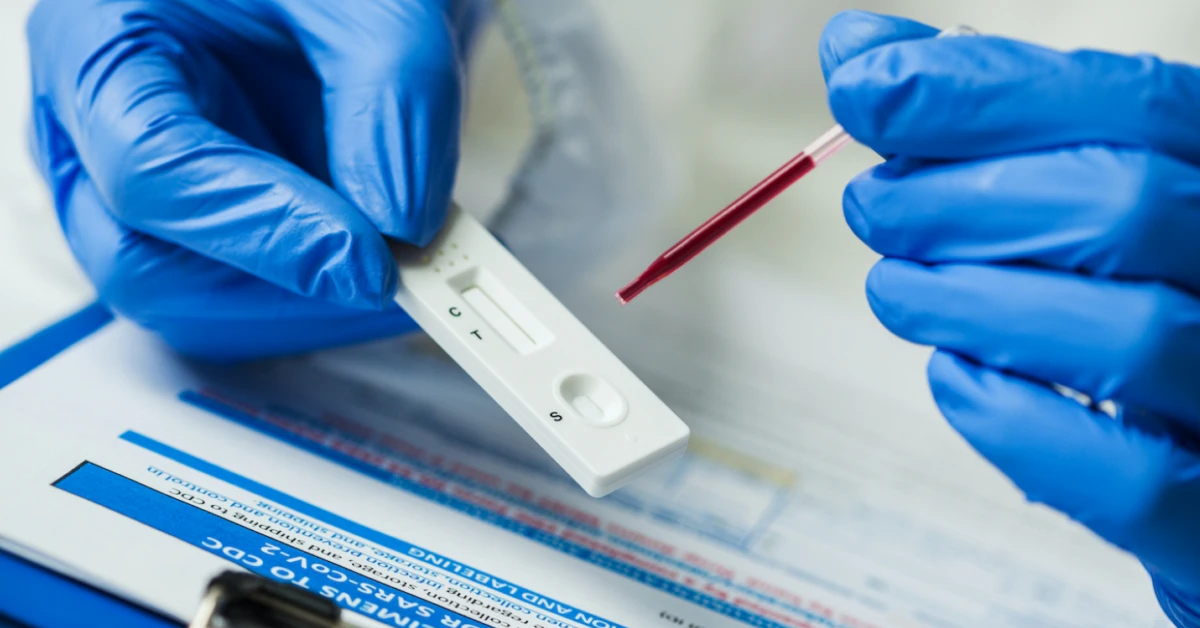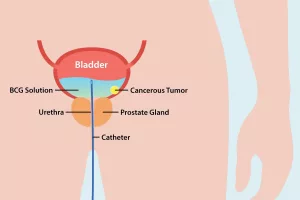Ever wake up, look in the mirror, and think, “Why do I feel like I’ve been hit by a truck?” You drink your coffee, maybe two, but it’s like your body just refuses to shift out of neutral. Maybe, deep down, you know it’s not “just stress” or “getting older.”
Sometimes it’s a whisper in your body—a numb toe, a weird tingle, a brain fog that just won’t clear. Maybe your doctor runs the usual tests, but nothing jumps out. If any of this sounds familiar, I want you to know: you’re not alone, and you’re definitely not imagining things.
Let’s talk about something that’s rarely discussed but could be the missing piece to your health puzzle: the intrinsic factor antibody test. Don’t worry, I promise to keep it simple, honest, and maybe even a little fun. Because understanding your body shouldn’t feel like deciphering ancient runes.
What Is the Intrinsic Factor Antibody Test, Anyway?
Okay, quick science lesson—promise it won’t be too nerdy. Your body needs vitamin B12, big time. It’s like premium fuel for your nerves, your blood, even your mood. But here’s the twist: you can eat all the B12-rich foods you want, but if your stomach can’t absorb it, you’re still running on empty.
This is where intrinsic factor steps in. Think of it as your stomach’s VIP pass—without it, B12 can’t get where it needs to go. But sometimes, your own immune system gets confused (yeah, bodies are weird!) and makes antibodies that mess with this process. That’s what the intrinsic factor antibody test looks for. If you have these antibodies, it could mean your body is blocking B12, leading to something called pernicious anemia.
How Does the Test Work?
Honestly, it’s not scary—just a simple blood draw. Lab folks look for two types of antibodies: “blocking” and “binding.” Both can sabotage your B12 absorption, but they work slightly differently. No need to remember those words—just know the test is looking for troublemakers.
Why Should You Care?
If you’re always tired, your memory is fuzzy, your hands or feet tingle, or you have mysterious digestive issues, your doctor might suggest this test. It’s especially important if you have another autoimmune disease, like a history of myasthenia gravis or autoimmune small fiber neuropathy. Our bodies love to multitask—sometimes in ways we really wish they wouldn’t.
When and Why Doctors Recommend This Test
So, when does the “intrinsic factor antibody test” pop up on a doctor’s radar? Usually it’s when you have symptoms that just can’t be shrugged off or explained away. We’re talking:
- Unrelenting fatigue (the kind that laughs at your eight hours of sleep)
- Strange numbness or tingling in your hands and feet
- Memory fog—like, where did I put my keys for the tenth time today?
- Digestive problems that don’t go away
But that’s not all. If you have a family or personal history of autoimmune issues, your doctor may want to be extra thorough. Maybe you’ve dealt with rheumatoid arthritis (and you’re familiar with the fun of finding the right diagnosis code for rheumatoid arthritis), or you’re navigating life after cancer treatment and are worried about developing an autoimmune disease after cancer treatment. Basically, if your immune system has a history of “acting out,” it’s worth checking if it’s picking on your B12 now, too.
And here’s something you might not expect—sometimes, people who have survived cancer wonder, is cancer an autoimmune disease? It’s not, but the link between cancer, your immune system, and later autoimmune troubles is a real thing. The body is complicated… and sometimes, kind of a drama queen.
Understanding Your Results: What Do They Mean?
So, you’ve had the test. What now? Grab a cup of tea, take a breath—let’s break it down.
If Your Test Is Positive
This means your immune system is making antibodies that mess with your intrinsic factor. Translation: your body isn’t absorbing vitamin B12 like it should. This is the classic sign of pernicious anemia. It sounds dramatic, but it just means your body is missing out on a vitamin it desperately needs.
With time, this can lead to a whole host of issues—nerve problems, memory loss, even mood swings. But here’s the good news: once you know, you and your doctor can fix it. Usually, this means regular B12 shots or high-dose pills. It’s not a life sentence, just a new chapter.
If Your Test Is Negative (But You Still Feel Off)
Here’s where things get a bit messier. Sometimes, people have B12 deficiency but don’t have these antibodies. That doesn’t mean you’re imagining your symptoms. There are lots of other reasons your B12 could be low—digestive issues, medications, or even just bad luck.
Your doctor may check for other autoimmune conditions (remember that “diagnosis code for rheumatoid arthritis”?), or even explore things like autoimmune small fiber neuropathy or celiac disease. The important thing is: don’t give up. Keep asking questions until you get answers that make sense for you.
Living With the Results: Next Steps and Practical Tips
Okay, let’s say your test was positive and you’ve got a diagnosis. What now? First off, breathe. Seriously. This isn’t the end of the world—it’s just a new thing to manage, like learning to drive stick or figuring out how to adult.
Treatment Options for Pernicious Anemia and B12 Deficiency
Most people start with B12 shots—think of them as a superhero boost straight to your bloodstream. Some switch to high-dose oral B12 (your doctor will help you decide). Either way, most people start feeling better pretty quickly. More energy, clearer mind, less numbness. It’s like getting your old self back, one dose at a time.
Regular Monitoring and Follow-Up
You’ll probably need regular check-ins with your healthcare team. They’ll want to make sure your B12 levels stay up and your symptoms stay down. It can feel like a hassle, but it’s really just a way to make sure you’re thriving, not just surviving.
Real-World Stories: You’re Not Alone
Let me tell you about a friend of mine, Maya. She went months feeling exhausted and forgetful—she even forgot her own birthday once (true story!). It wasn’t until her doctor ran an intrinsic factor antibody test that they figured out what was wrong. A few months after starting B12 shots, she was back to hiking, working, and remembering every single birthday in her family. It’s amazing how one little test can change everything.
And it’s not just Maya. There are folks out there juggling more than one autoimmune issue, like those who’ve been through autoimmune disease after cancer treatment or who are exploring new treatments for myositis. It can be overwhelming, but knowing you’re not alone—and that there are answers—can be a game changer.
Benefits, Risks, and Limitations: Let’s Be Real
Look, no test is perfect. The intrinsic factor antibody test is a great tool, but it’s not magic. Sometimes it misses things (false negatives), and sometimes it picks up antibodies that don’t actually cause trouble (false positives). But it’s still one of the best ways to figure out if your immune system is picking on your B12.
Benefits of the Test
- It can explain years of mysterious symptoms
- It helps you get the right treatment fast
- It can shine a light on other autoimmune issues you didn’t know you had
Limitations and Risks
- It’s not 100% accurate (nothing in medicine is, really)
- If you’re negative but still feel sick, don’t give up—keep pushing for answers
- The blood draw is minor, but if you’re needle-shy, let your nurse know—they’ve seen it all!
Related Conditions: Because Life Loves Complications
Dealing with one health curveball often means you have to become an expert in a dozen more. If you’re reading this, you might be wondering about conditions that sometimes tag along with B12 issues, or how your health might affect other parts of your life—like insurance or work.
| Related Condition | Why It Matters |
|---|---|
| History of Myasthenia Gravis | Having one autoimmune disease can raise your risk for others. |
| Autoimmune Small Fiber Neuropathy | Can cause nerve pain or numbness, sometimes linked with B12 issues. |
| Diagnosis Code for Rheumatoid Arthritis | Doctors use this for insurance and tracking; RA often overlaps with other immune issues. |
| Life Insurance & Multiple Sclerosis | Chronic illnesses can complicate insurance—be ready for more questions. |
| Can You Get Life Insurance if You Have Crohn’s Disease? | It’s possible, but requirements vary; always be honest on forms. |
| Can You Get Disability for Sarcoidosis? | Sometimes, if symptoms are severe—talk to a specialist for guidance. |
| Is Cancer an Autoimmune Disease? | Nope, but some cancer treatments can trigger autoimmune problems. |
| New Treatments for Myositis | Medical advances happen all the time—talk to your doctor about what’s new. |
Let’s Get Practical: What Should You Do Next?
If you’re nodding along to any of this, here’s my advice: trust your gut (and your nerves, and your memory). If you’re struggling with symptoms that don’t make sense, ask your doctor about the intrinsic factor antibody test. It’s a simple step that could be the breakthrough you’ve been looking for.
And if you’ve already had the test and are starting treatment—congratulations! You’re on your way to feeling like yourself again. Keep in mind, managing an autoimmune condition is a journey, not a sprint. Some days will be easier than others. Celebrate the good days, and give yourself grace on the hard ones.
One last thing: don’t be afraid to share your story. You never know who else is quietly struggling, searching for answers, and just needs to hear that they’re not alone. Maybe that person is reading this right now—maybe it’s you.
Conclusion: Your Health, Your Story
Alright, friend, we’ve covered a lot—from the science-y bits to the real-life ups and downs of living with B12 issues. The intrinsic factor antibody test can feel like a hidden clue in a mystery novel—hard to spot, but so important once you find it. If you’ve been feeling off, don’t settle for “it’s just stress” or “it’s all in your head.” Your body is trying to tell you something, and you absolutely deserve answers.
Ask questions. Seek support. And remember, you’re the main character in your health story—never a sidekick. If you have thoughts, questions, or want to share your own journey, drop a comment. Let’s learn from each other. Life’s too short to spend it tired and confused, right?
You’ve got this. And if you ever need a pep talk or a little extra info, you know where to find me. Stay curious, stay kind to yourself, and here’s to brighter, more energized days ahead.

























Leave a Reply
You must be logged in to post a comment.